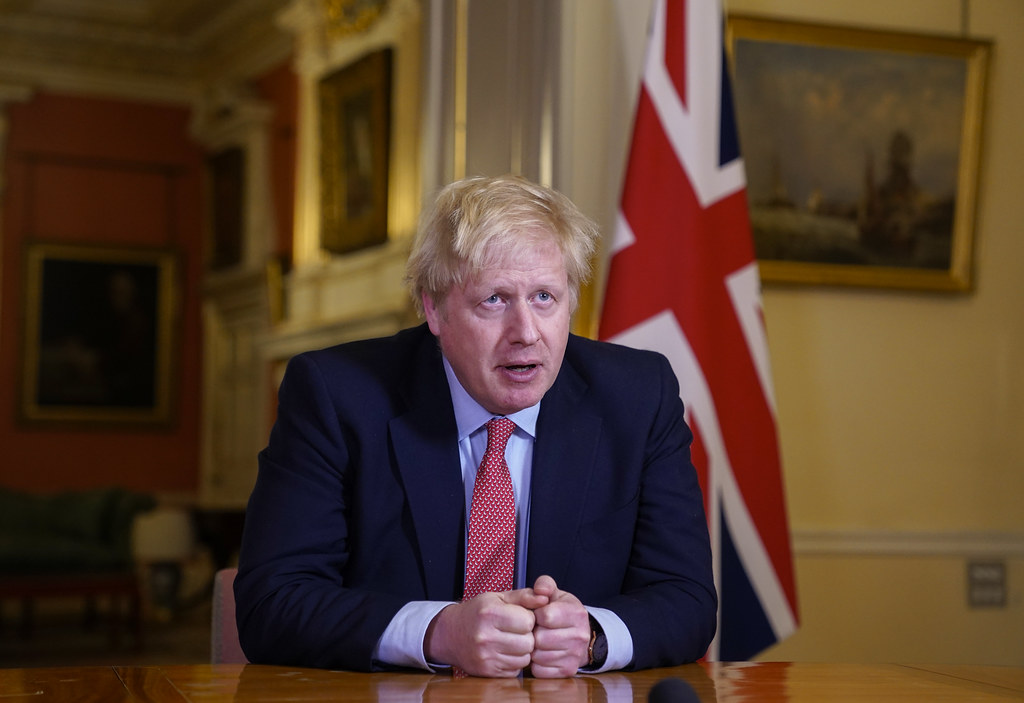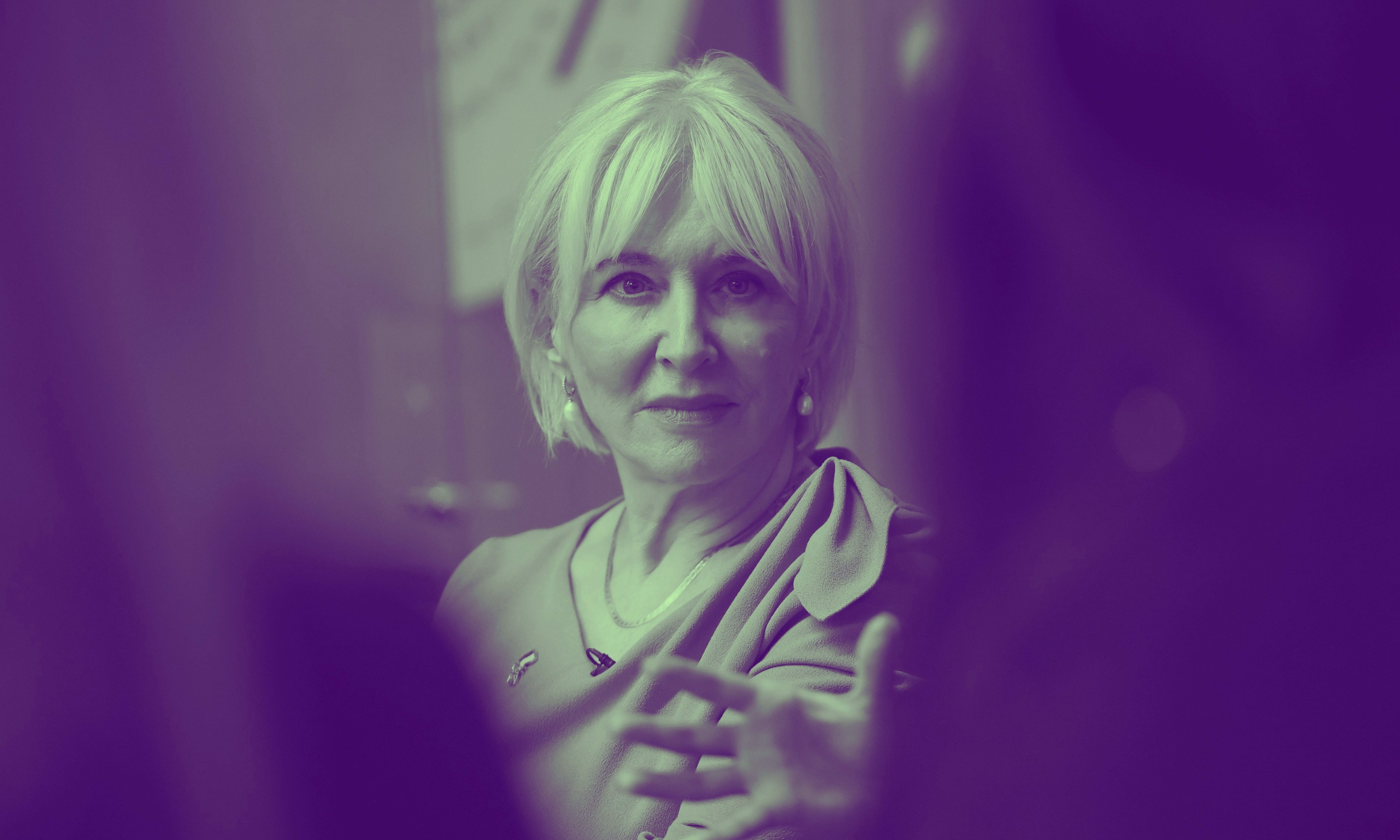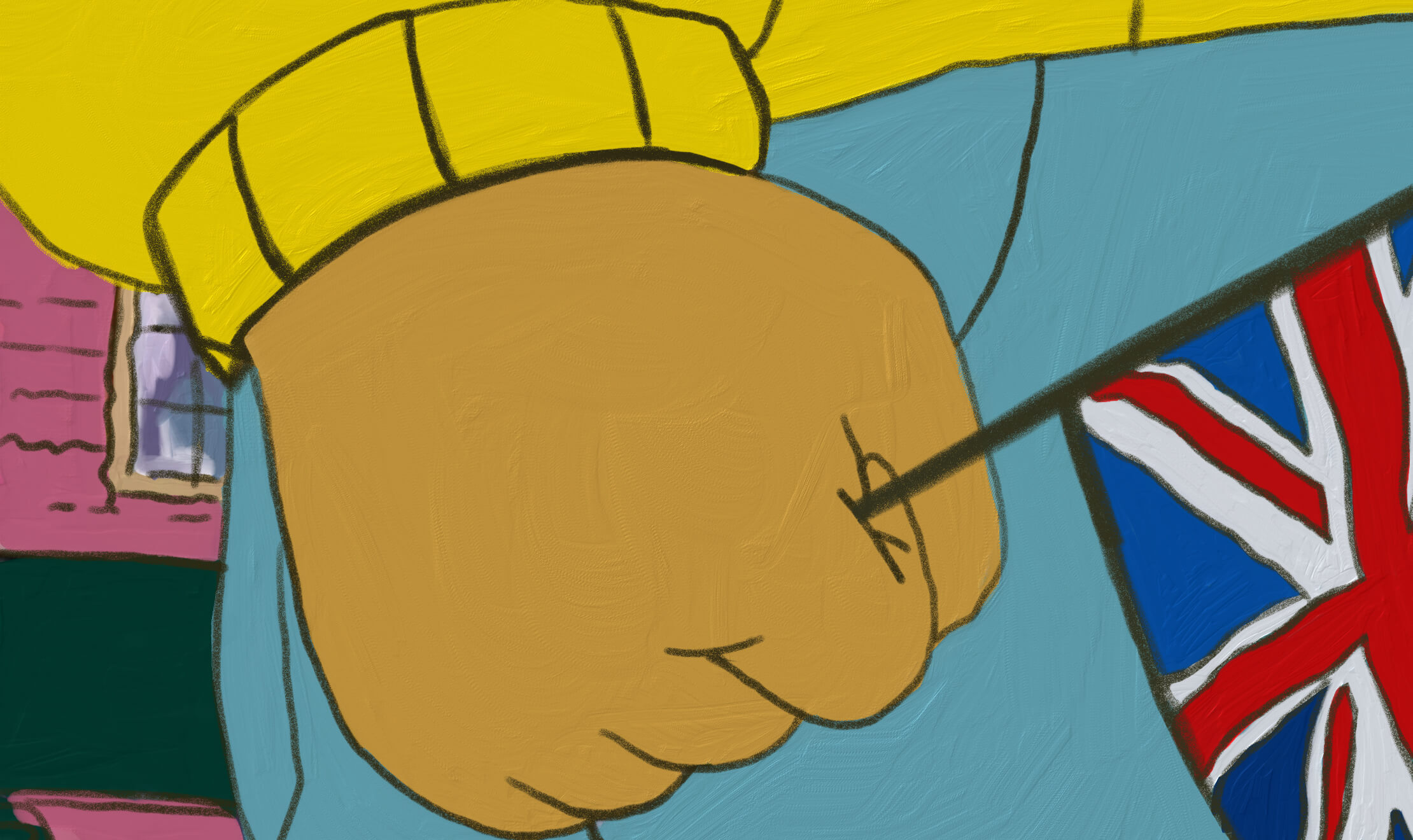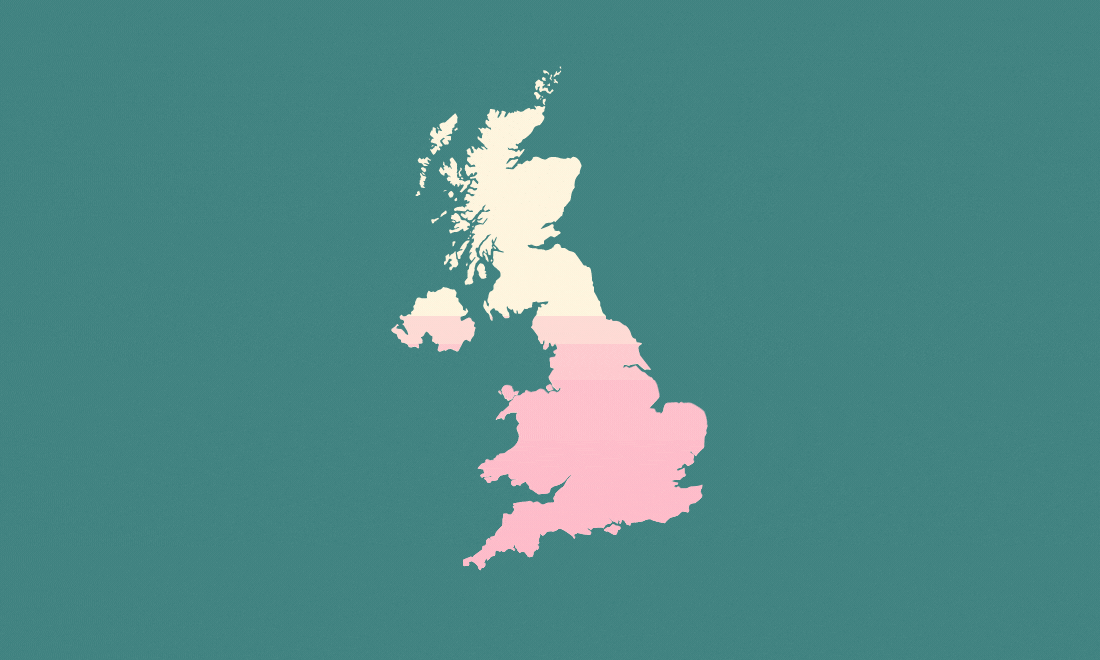
Image via Paramount Pictures / Mark Waters
The ITV leaders’ debate this week was disappointing for a myriad of reasons. There was the fact that Jeremy Corbyn was cruelly jeered for daring to mention that poorer communities are hit harder by the climate crisis. Who could forget Boris’ tiresome bot-like retort to every question being “let’s get Brexit done”? But, the thing that really soured the political special was the pithy and twee prioritisation of niceness.
Said in the same voice as a year one teacher trying to spark a reconciliation between two warring tots, host Julie Etchingham said that people felt that “the nastiness of political debate in this country has got out of control.” She continued: “Will you two tonight look at one another and no matter who becomes prime minister make a gesture to improve things today – make a pledge and promise?” An awkward handshake soundtracked by Boris’ dithering ensued.
Just when I wasn’t quite sure whether the debate had been a waste of time, the last question was asked. It could have challenged Boris on his long history of racism or could have asked about how “getting Brexit done” would help stop people who have allegedly been declared fit for work from dropping dead in Job Centres, instead it was about Christmas presents. What would these two leaders leave each other under the tree? One audience member asked. “Who gives a fuck?” I cried.
As an adjective, “nice”, is a layered combination of many other palatable attributes including obedience, being agreeable, friendliness, and avoiding confrontation or contention. Britain has a well-documented obsession with the aforementioned, and nice’s older cousin: civility.
We’re often led to believe that the people in this country are amicable, almost to a fault. Last week we saw Prince Andrew claim his biggest fault was that he was too “honourable”. He was so bound by his duty to be pleasant that he had to spend four days partying in the house of a known paedophile when he’d actually visited him to break off the friendship. There are many tropes about us being awkward well-meaning people who love standing in queues, apologising a bit too much, and tutting to illustrate our displeasure when we really want to display our real anger. That’s the sort of thing you read on Very British Problems meme pages.
But when weaponised, it is an extremely effective PR trick that is muddily intertwined with ideas of us being far more civilised than other people. It’s a hop, skip and jump away from the sentiment of Rudyard Kipling’s “The White Man’s Burden” which positions British civilisation as so superior that it argues it’s their duty to impose its practices on others via colonisation, but that’s a whole other conversation. Mostly, it just shows how historically, the veil of being “civilised” has been used by Britain to deflect dehumanising actions. Politeness and etiquette are what the country puts in the shop window while human rights abuse takes place in the stock cupboard.
“I too wish we could all bake a cake full of rainbows and smiles, and all eat and be happy. But there’s a pressing need to hold power to account”
Of course, it is nice to indulge in the more wholesome side of life. That’s why until very recently we had fun seeing Justin Trudeau as a harmless heartthrob, despite his betrayal of Canada’s indigenous populations, building a pipeline while presenting himself as eco-conscious, and of course having a rampant love affair with blackface. Focusing on “niceness” is how Obama could oversee ten times more drone strikes than Bush, but you’re more likely to see tweets reminiscing on how good he was to his wife or his bromance with Joe Biden that resulted in them making each other friendship bracelets. Each year at Notting Hill we circulate images of the same policeman that haunt black communities dancing with black women as if grinding on each other will somehow erase decades of oppression. It’s why we saw more about the praise for Botham Jean’s brother hugging Amber Guyger than we did about the fact Amber had previously sent racist text messages and murdered a black man for no good reason.
Recently, it seems as if “be nice” is the go-to retort to protect problematic people. Tories want us to shake their hands, kiss them, and choose them to live with us in intimate shared housing, no matter how their beliefs badly impact our safety and wellbeing.
The way “niceness” was weaponised on Tuesday night reeks of docile centrism, dangerously suggesting that the left and right are simply teams we support. It was reminiscent of how the Hollywood elite think the world’s problems will dissolve if you just smile and be tolerant. Ellen Degeneres recently deflected warranted criticism of her friendship with George Bush by saying she had many friends she disagreed with including some who wear fur. As if this is akin to the destabilisation of the Middle East and orchestrating the murder of thousands of people. Her message was that we should just accept war criminals and embrace them to show them what good people look like. Orlando Bloom supported her by commenting “kill ’em with kindness”, while Lenny Kravitz said: “let love rule”.
“Rather than tone-policing critics, people need to scrutinise why the debate is so heated, and what is at stake”
Like that memorable scene in Mean Girls, I too wish we could all bake a cake full of rainbows and smiles, and all eat and be happy. But there’s a pressing need to hold power to account. It is true that this current political climate is toxic. We’re living in increasingly polarised times where tensions are running high, but that’s because the stakes are far higher. Playing nice in the face of a constitutional crisis is a farce, and it does nothing to help those impacted by bad politics. Especially in an election where the government have decided that facts, integrity, and tolerance aren’t vote-winning attributes. What the country needs is an opposition that fights back.
In terms of politically contentious issues, being “nice” is an annoyingly empty action. A friendly chat is not a viable stand-in for a stirring deconstruction of the current government when hate crimes are surging and the working class are being pummelled into the ground by austerity. We should always show compassion and empathy. But any climate that allows placid kindness towards those orchestrating chaos, while dismissing vital criticism, is one that silently allows injustice to carry on.
During Tuesday’s debate, the “kindness” of the presenter allowed the Tories to escape due scrutiny for an array of worrying scandals and beliefs. They went unchallenged even in the face of the party’s resistance to launching an internal enquiry into alleged racial prejudice, even though MP Anne Morris said the n-word and still has a job, and Boris has previously printed eugenicist statements about black people having lower IQs.
Telling everyone to play nice only serves to gloss over our problems. Rather than tone-policing critics, people need to scrutinise why the debate is so heated, and what is at stake. We need to have deeply uncomfortable conversations out in the open, and challenge the powers that be. Being polite will not cut it in this political climate.

Britain’s policing was built on racism. Abolition is unavoidable

How Pakistan’s Khwaja Sira and transgender communities are fearing and fighting for their futures

Their anti-rape performance went viral globally. Now what?






